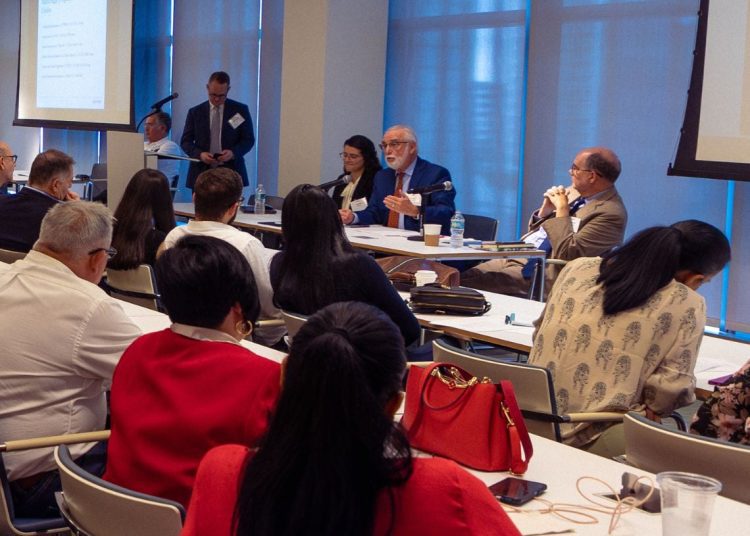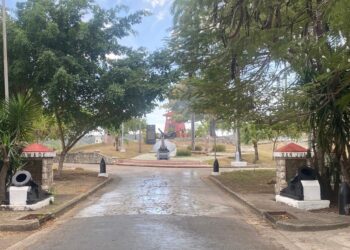This week, the city of Miami hosted an unprecedented, hopeful and historic meeting. At least this is the case for those who seek to open viable paths to the growing economic interests between business actors in Cuba and the United States.
Despite the difficult context of bilateral relations marked by the embargo/blockade and the extensive repertoire of sanctions against Cuba that remain in force, these businesspeople from both shores met to identify the existing alternatives and their points of contact.
More than 70 private businesspeople from the island traveled to Miami this week and were received by Cuban-American and U.S. colleagues, to establish contacts and forge alliances with their peers, waiting for new flexibilities to be announced from Washington that favor expansion and strengthening of the Cuban private sector.
In their welcoming remarks of each of the two work days, the former mayors of Hialeah, Raúl L. Martínez, and of Coral Gables, Raúl Valdés-Fauli, highlighted the significance of this meeting and praised the value of entrepreneurship to promote the economic development of a community, as evidenced by many Cuban emigrants in Miami and the new private entrepreneurs in Cuba are trying to do today.
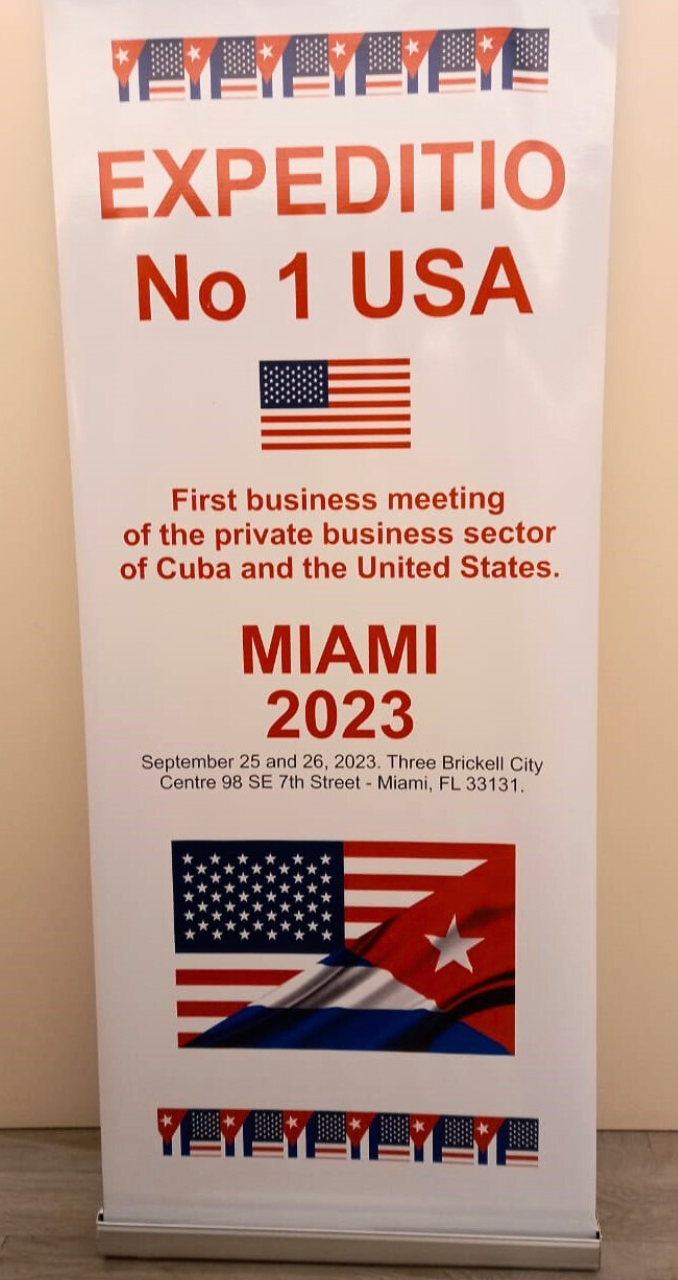
Study the regulations
Legal experts and officials from the Biden administration responded to this call to clarify the limits and opportunities available so far to establish economic relations at this level. They provided first-hand explanations about the current U.S. government policies and regulations for trade with Cuba.
Lawyers from the firm Akerman LLP, a law firm with extensive work on the subject, also insisted on the legal framework and urged private businesspeople on the island to delve deeper into these regulations to facilitate the relationship with their U.S. counterparts and avoid fears and confusion ruining potential business.
Nothing to announce, for now
During the first day of the event, officials from the Department of State, the Department of Commerce and OFAC provided details about the general and specific licenses that, even with the limits and prohibitions of the embargo/blockade, allow certain imports and exports, and other operations between companies from both countries.
In particular, Zack Haas, who spoke on behalf of the State Department, reiterated the Biden administration’s willingness to support the island’s private business community, in line with what was announced in May 2022, and announced that possible changes in the current regulations are being studied.
However, he assured that, for the moment, there was nothing new to announce, despite recent press publications about banking and technological facilities for private entrepreneurs in Cuba.
Biden administration could announce measures to provide “greater financial support” to SMEs in Cuba
The road is not easy
Among the Cuban MSMEs participating in the meeting — arriving from both Havana and other provinces — the sectors of agroindustry, imports and marketing of products, information technology, services, construction, renewable energy, cosmetics, textile manufacturing and other manufacturing sectors, were represented.
Those gathered in Miami recognized that they must deal with the direct and indirect effects of U.S. sanctions — including Cuba’s permanence on the criticized list of sponsors of state terrorism — and, on the other hand, also with the reluctance and particular rhythm of the reforms in Cuba.
They know that it will take time to consolidate the performance and business philosophy of the new Cuban businesses. Many of them were previously employees or self-employed workers, converted today into entrepreneurs, leading MSMEs that emerged from the new 2021 regulations. They must incorporate knowledge, gain experience and abandon practices carried over from previous management experiences.
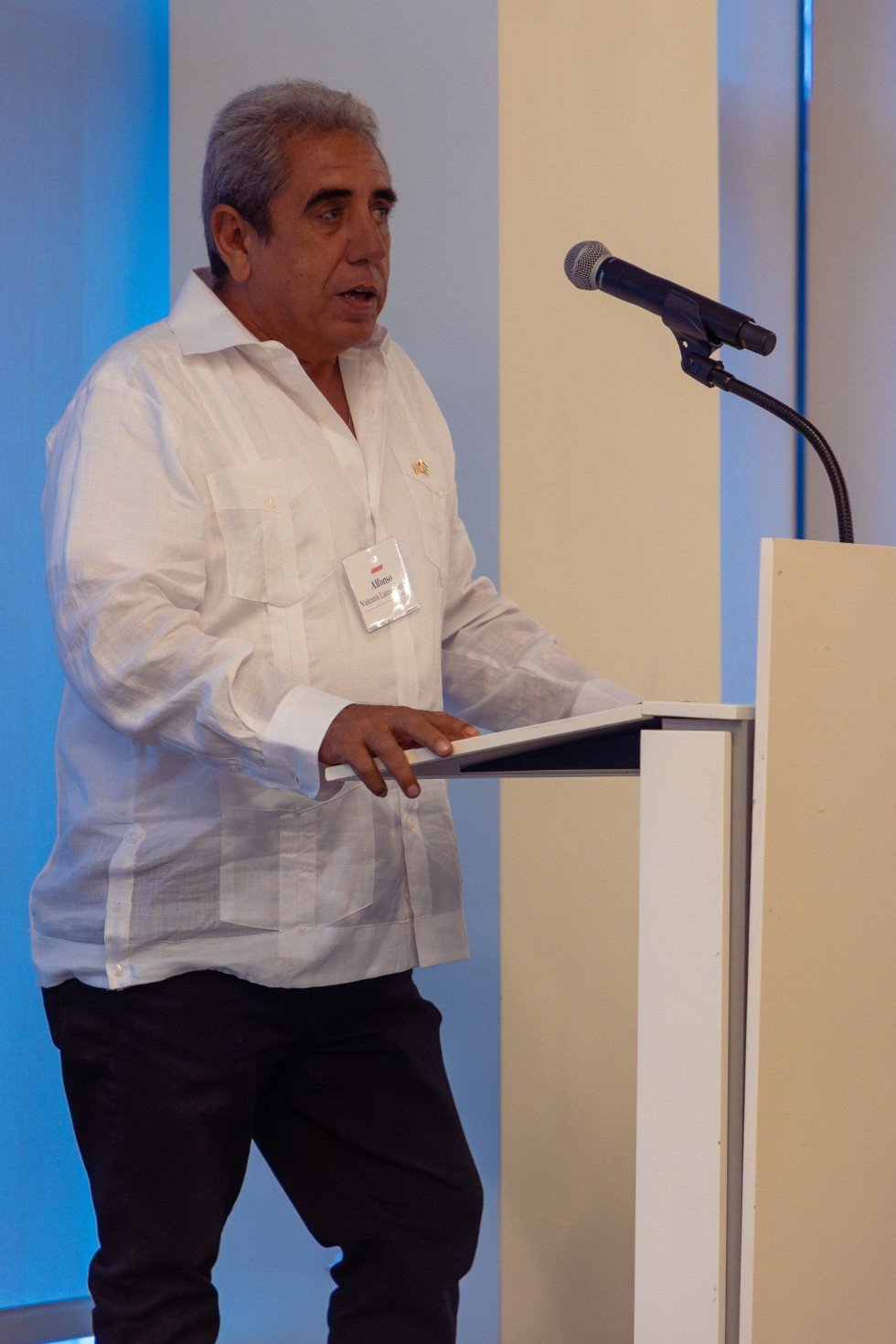
Concrete results
During the two days of the event, those gathered in Miami sought to identify common interests and learn about each other’s particularities. Cuban businesspeople from here and there need to recognize themselves as equals in their willingness to contribute to their country. This was highlighted at the opening by Alfonso Larrea, main partner of Evexcon SRL, a Cuban MSME that organized the event, who reaffirmed the not only symbolic but also practical value that this meeting can have for those arriving from the island.
Cuban-American businessman Hugo Cancio, CEO of Fuego Enterprises Inc. and Katapulk, a marketplace that provides its platform to many of these small enterprises that are beginning their journey on the island, either as producers or marketers, agreed with this.
“That Cuban businesspeople from both sides of the Florida Straits meet, exchange, collaborate and explore joint opportunities in Miami is not only historical: it is the future. At Katapulk we already collaborate with many of these MSMEs present here, and now we are also exploring new investment and partnership opportunities,” he commented.
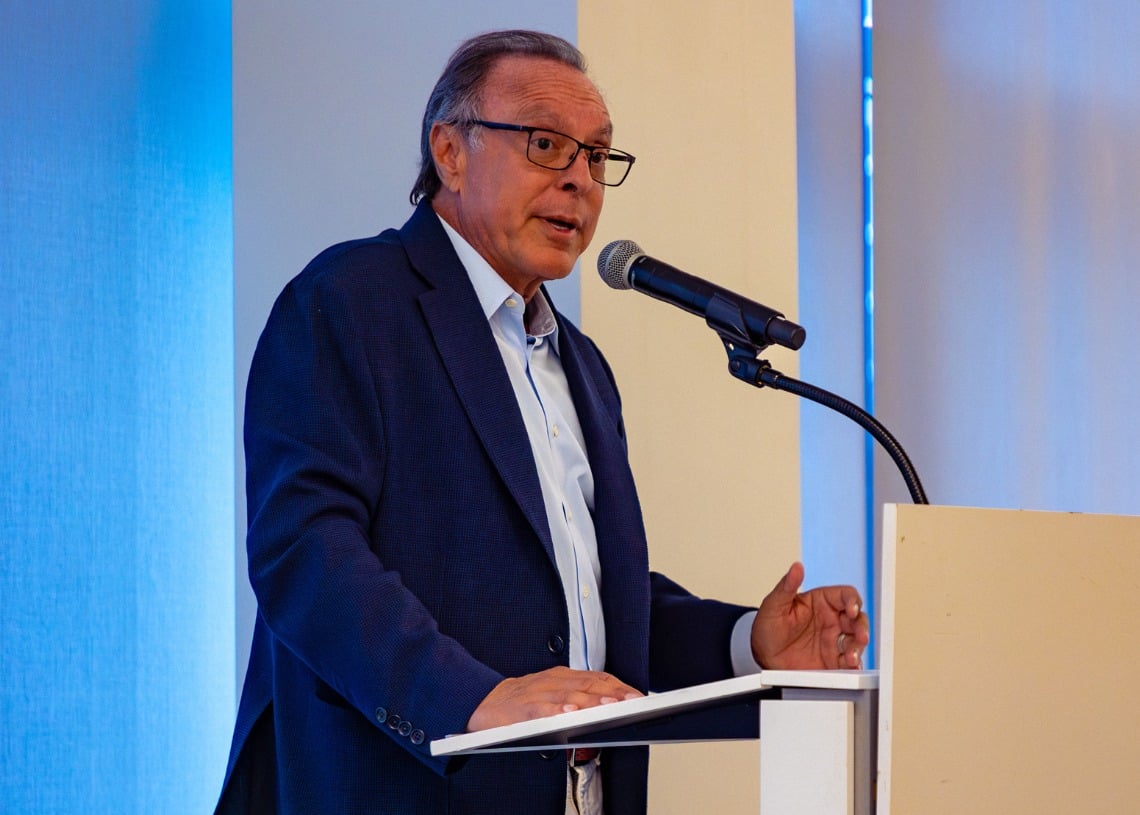
Amplify experiences
Almost 9,000 new MSMEs have been established in Cuba in the last two years. Those who traveled as part of this first expedition have been able to meet first-hand U.S. businesspeople, some of them with roots on the island, such as Mike Fernández, a successful businessman specialized in the health sector, who advised his colleagues to “think big” and focus “on what is difficult” to achieve success in the competitive business world.
“Every obstacle we encounter along the way is to be overcome,” Fernández told the island’s businesspeople, whom he asked to amplify the experiences and advice received on this visit upon their return to Cuba.
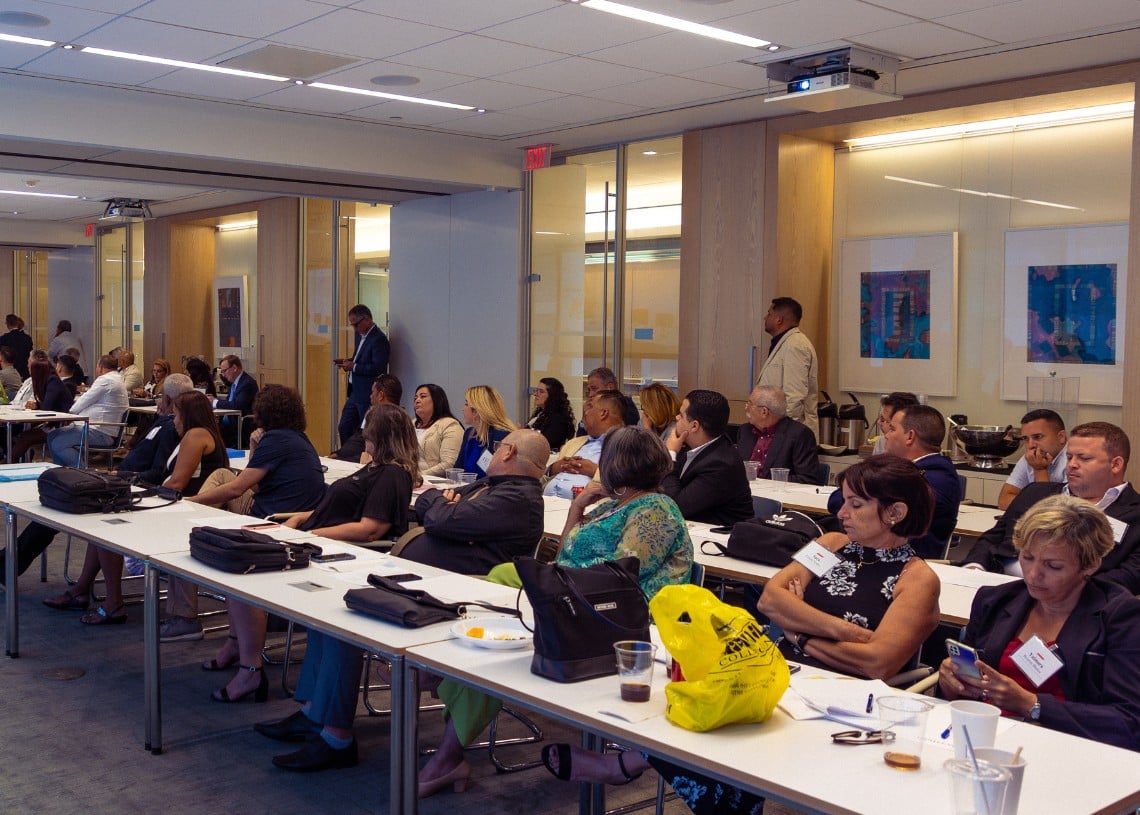
Crisis and resilience
Oniel Díaz, partner and general manager of AUGE, a corporate services enterprise, elaborated on the evolution of the private sector on the island. He referred to the negative impact of the pandemic and the economic crisis that the island is going through on the operation of private enterprises. At the same time, he praised the resilience and inventiveness of entrepreneurs, as well as the attention and participation in the private sector of Cubans who live outside the country, also in the United States.
Díaz Castellanos commented on the need to resolve the persistent problems of the Cuban exchange market for the support and development of the emerging private business community. No measure that can be approved by both countries’ authorities will be able to function optimally without this obstacle being resolved, he considered.
In addition, he regretted the usual politicization of Cuba’s private sector by both ends of the political spectrum, due to the negative repercussions that this entails for their businesses and their social perception. In his opinion, this private sector is “subversive” for the discourse raised by both extremes and must deal with the “inevitable” and “painful” contradiction fueled by political polarization.
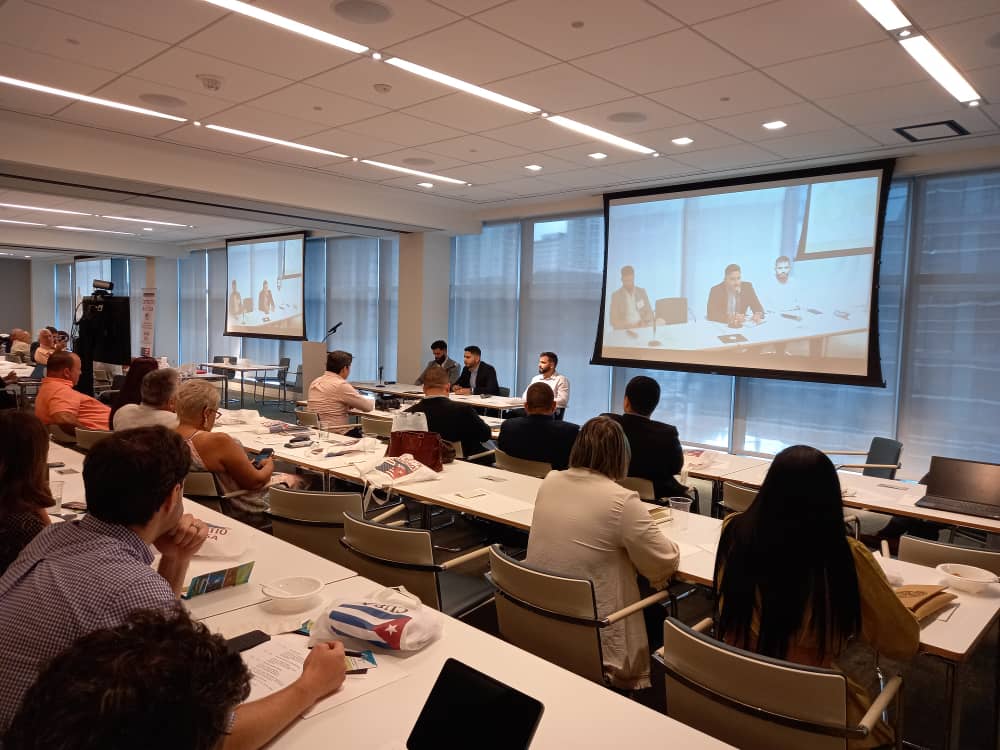
Logistics, technology, financing, raw materials and new markets
Other private entrepreneurs on the island also had the opportunity to briefly present their work, their experiences and needs in search of possible alliances and suppliers in the United States.
Representatives of agribusiness, such as Media Luna and La Ceiba; from the manufacturing sector, such as Vitroarte and Confecciones Ramos; construction and renewable energy, like Dimasoluciones and Acemos; services and commerce, such as Ricotomar and Barandela; and IT, such as Dofleini and Pixel Solutions, spoke on the second day of the event.
Logistics, technology, financing, raw materials and new markets for their products and services were needs reiterated by the private entrepreneurs, depending on their respective activities. At the same time, they highlighted the training and professionalism of their workforce as a strength to offer, despite the challenge entailed by the systematic migration of workers.
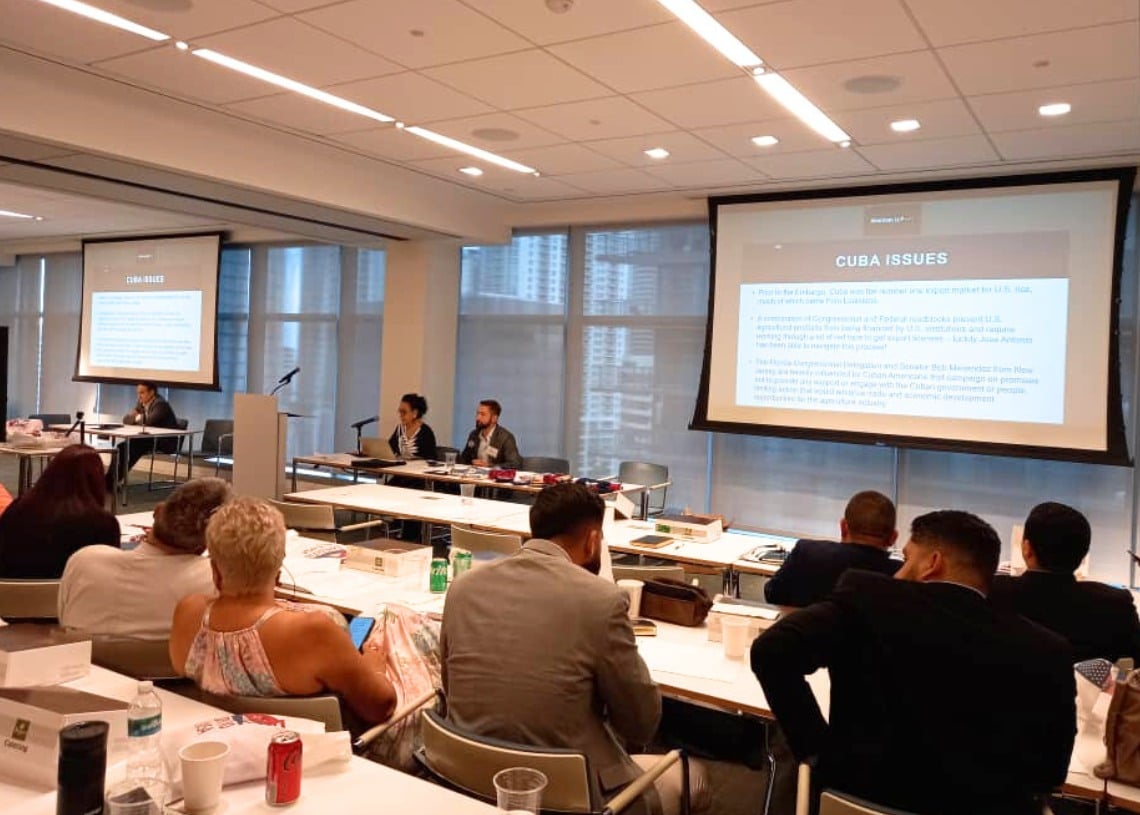
In addition, they advocated working and competing on equal terms with their U.S. peers and other countries, to offer their products and services, in the face of the restrictions and difficulties derived from the U.S. sanctions and policies towards the island, whether technological, financial or from other areas, which condition and limit their operation and development.
U.S. and Cuban-American businesspeople also presented their business portfolios and proposed collaboration alternatives. Among them were the USA Rice producers association, Jack Links Snacks, Koch Foods, Sea Bord Marine and Díaz Food. All of them presented themselves as possible suppliers for the island’s private sector.
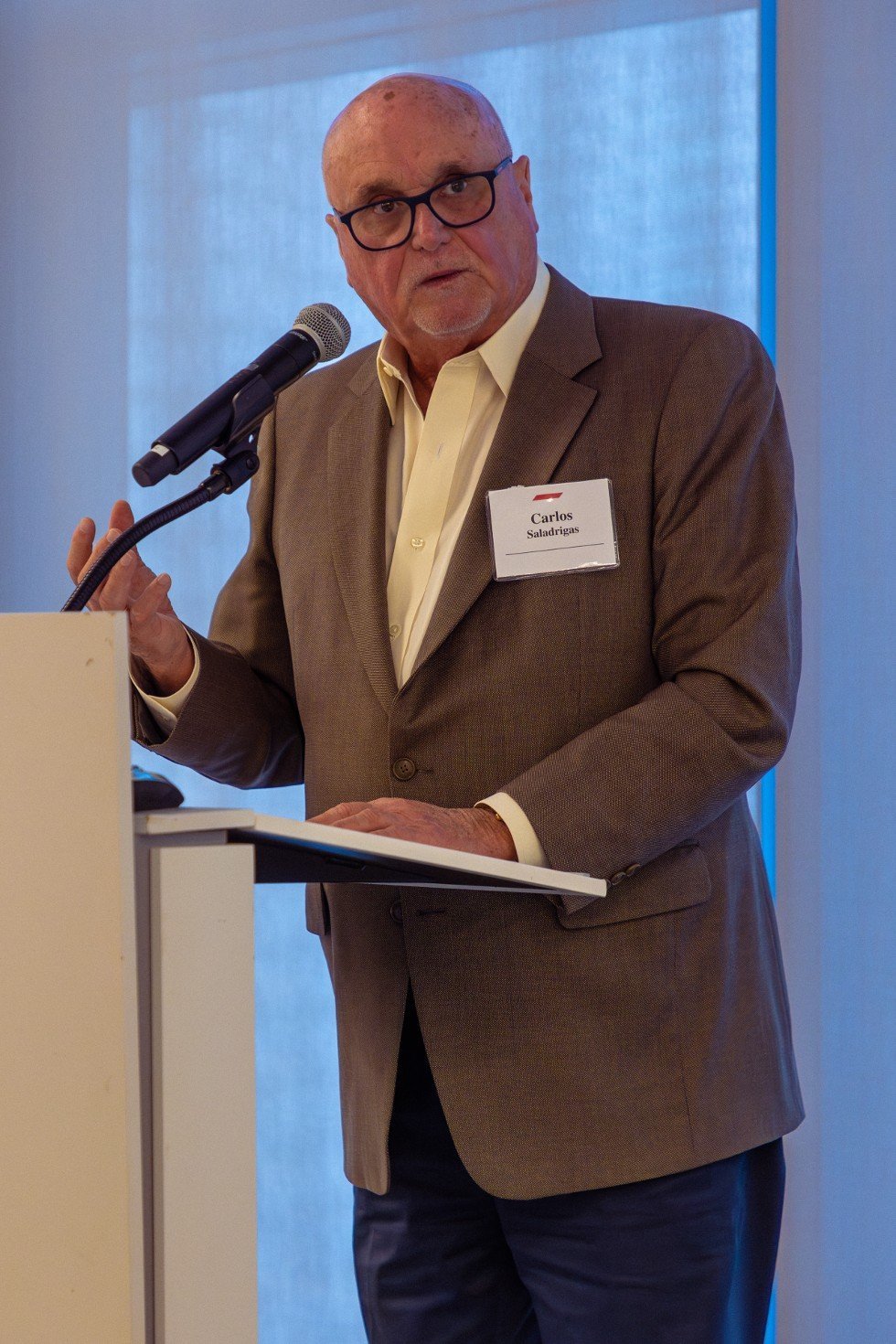
May you be successful
Cuban-American businessman Carlos Saladrigas, chairman of the Cuban Study Group, reiterated to visitors a message that has been repeated at the event: “All we want is for you to be successful.”
Saladrigas considered that a meeting like this one in Miami “does a lot of good” because it contributes to understanding between Cubans on the island and Florida, and assured that many in Miami are willing to help and advise private entrepreneurs in Cuba.
Humility, vision of the future, strategic planning, focus, capacity for reinvention, teamwork and networking were some of the advice that Saladrigas gave to the audience of new entrepreneurs.
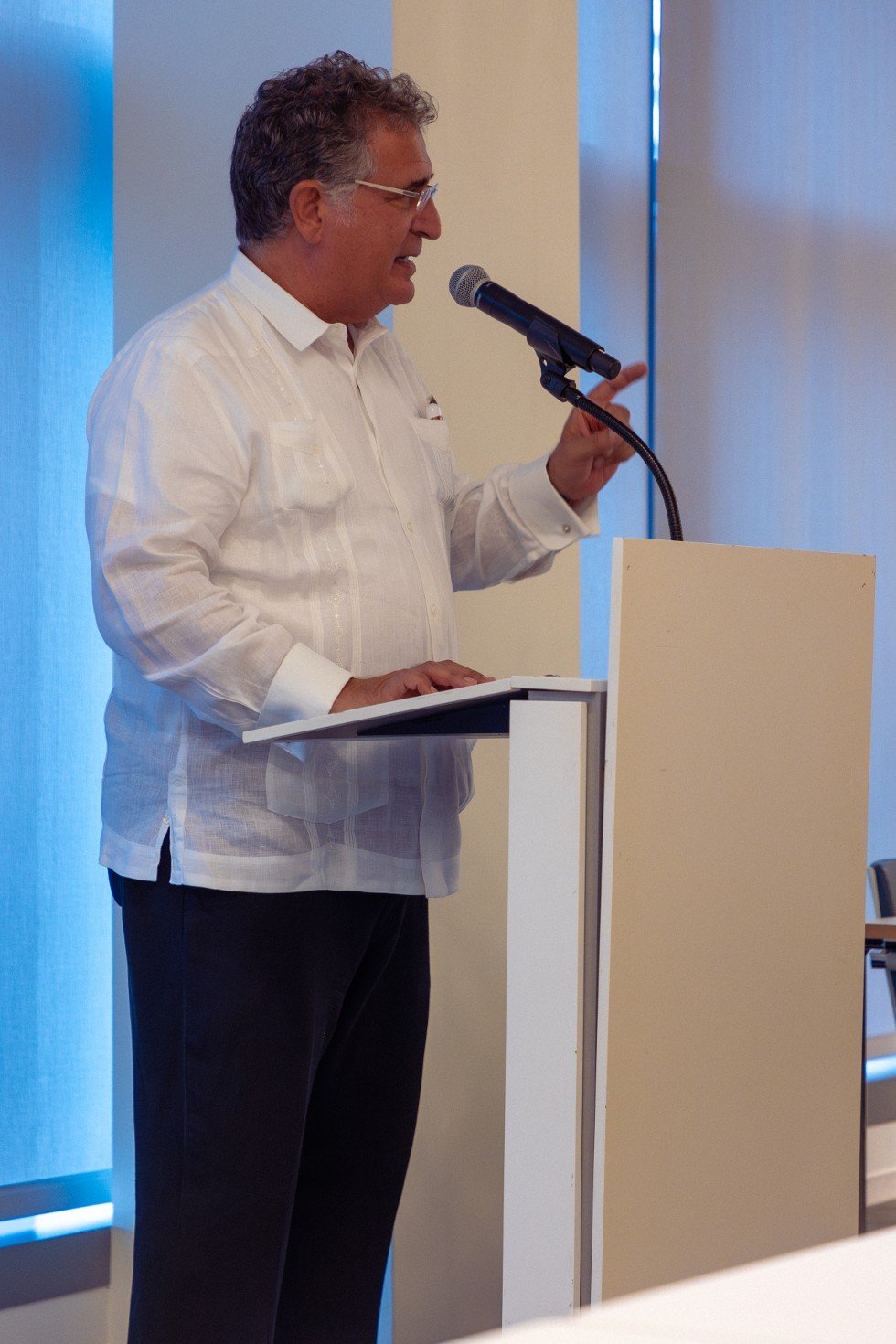
Joe García: “Finding a common space”
One of the faces of the meeting was that of Joe García. The former congressman from Florida was one of the hosts of the Miami meeting, convinced of the role that private business can play today as a “common space” between Cuba and the United States.
“When there are differences between two parties, what is needed are common points. Things in common that we can find, that we can talk about. And we here in the United States think that entrepreneurs, small businesses, are important in any democratic and prosperous society, and in Cuba, due to the laws and regulations approved in recent years, they are also saying the same in this area,” he commented to OnCuba.
“We are going to work for that common space, because with this what we are doing is giving better conditions, more future, to the Cuban people. This is a space in which both parties can work together and move society forward,” he added.
However, García does not deny that achieving it is not an easy task, due to the obstacles and implications of the issue on both sides of the Florida Straits:
“It’s not easy, of course not. There is a lot of prejudice, a lot of obstacles, a lot of disappointments, a lot of suffering, a lot of traumas among Cubans, but that doesn’t mean we can lie in bed and complain, nor can we wait for the government here or there to take another step, that would be very important, of course. But we also have to do.
“Every space that opens up, that is allowed to a business, must be occupied. And what we want is to ensure that more opportunities open up and, ultimately, the people of Cuba benefit.
“The willingness of many people who have decided to stay on the island, start a business, and who are fighting for their space, for their family and also to make a more prosperous country, is a very important force for a better future and it is necessary offer them all the support possible. That seems essential to me.”

